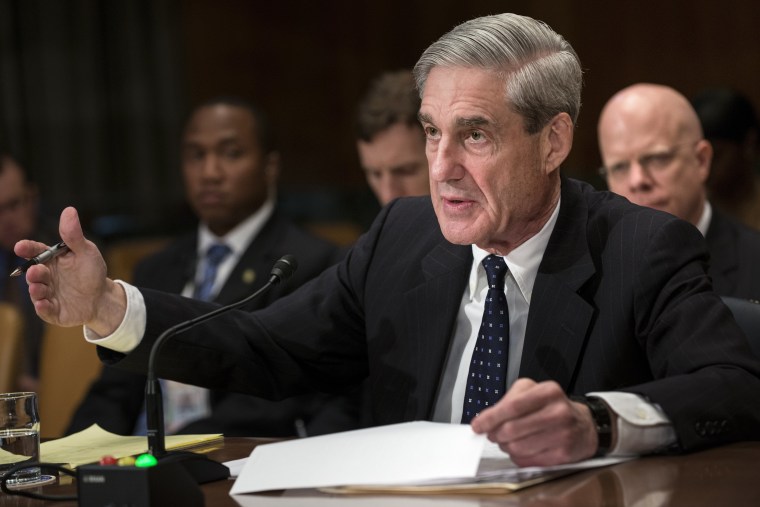Most have probably heard the story of the boy who cried wolf. The moral of the story applies nicely to the president who cried exoneration.
Donald Trump has spent the last several months lying about being exonerated in the Russia scandal. It happened, by my count, at least six times in response to separate and unrelated developments, each of which did not absolve the president, his bogus claims to the contrary notwithstanding.
With this in mind, it felt familiar last week when Trump said Special Counsel Robert Mueller, in a report the president has neither seen nor read, had "totally" exonerated him, specifically on the question of obstruction of justice, despite Bill Barr quoting Mueller as writing that his report "does not exonerate" the president. The Associated Press explained this morning, "President Donald Trump is taking his interpretation of special counsel Robert Mueller's Russia investigation well beyond the facts."
Why lie, repeatedly, about being absolved? It's likely that Trump hoped to deceive the public so that he could try to reap some political and electoral rewards. The trouble is, the president who cried exoneration a few too many times clearly has a credibility problem.
Even as the White House claims vindication from the summary of special counsel Robert Mueller's findings in the Russia probe, the American public does not see a clear verdict about whether President Donald Trump has been cleared of wrongdoing.According to a new NBC News/ Wall Street Journal poll, 29 percent of Americans say they believe Trump has been cleared of wrongdoing, based on what they have heard about Mueller's findings, while 40 percent say they do not believe he has been cleared.
Similarly, the latest Washington Post poll asked respondents, "Mueller's report states that 'while this report does not conclude that the President committed a crime, it also does not exonerate him' of obstructing justice. Trump said the report was a 'complete exoneration.' Who do you believe more -- Trump or Mueller?"
Only 32% sided with the president.
There's also the latest NPR/PBS NewsHour/Marist poll, released late last week, which pointed in the same direction: "Almost six in 10 (56 percent) said that questions still exist, with just 36 percent saying Trump is clear of any wrongdoing."
It's possible more Americans would see this story the way the White House has told them to if the president were more trustworthy. It's also possible the American mainstream is resisting the rush to judgment and wants to see the Mueller report before drawing conclusions about its contents.
Whatever the cause, if Trump assumed the public would accept his spin at face value, he's probably disappointed that more people expect to see some proof before embracing White House talking points.
